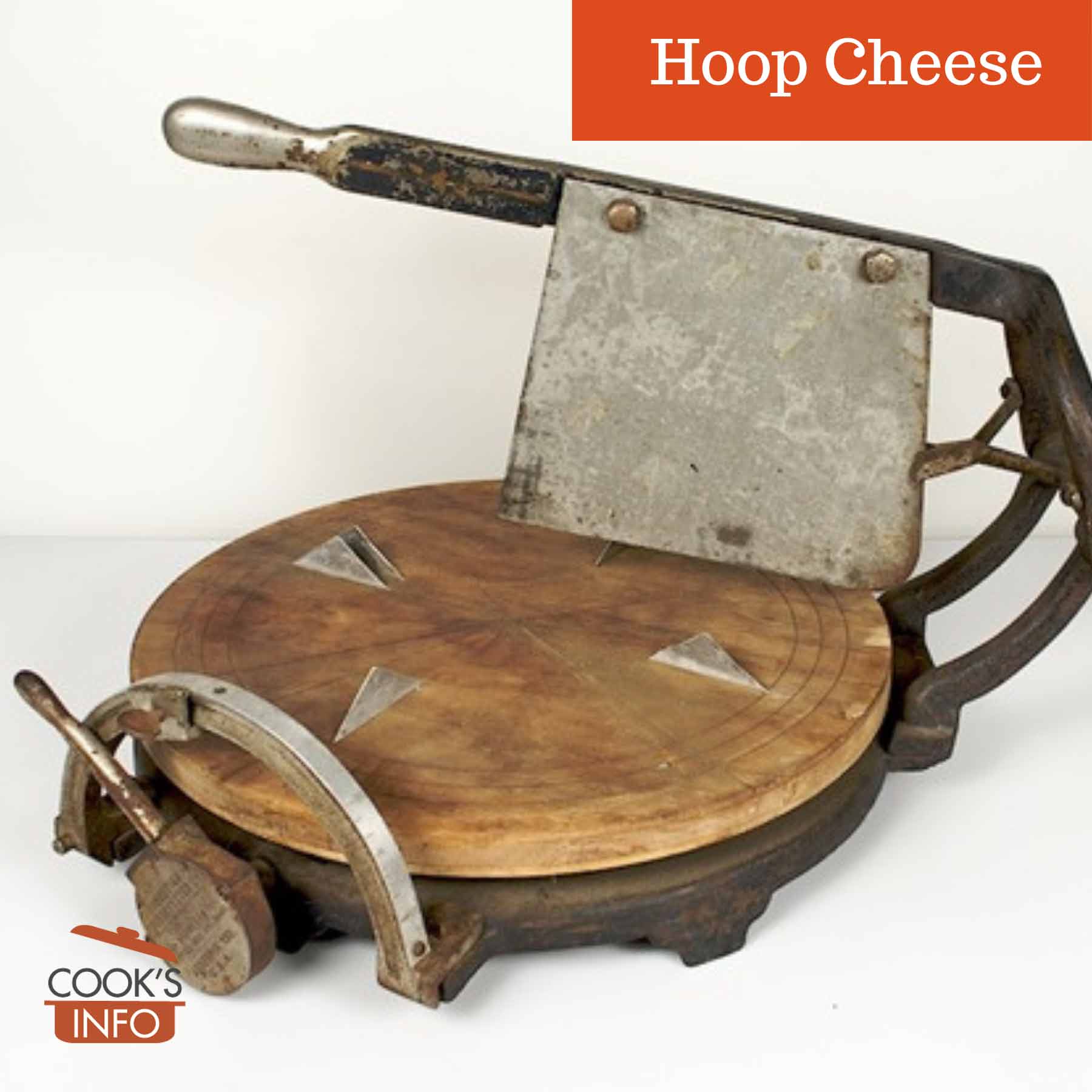
Hoop cheese cutter for hard hoop cheeses. Sean Fields / wikimedia / 2008 / Public Domain
Hoop Cheese is a term that is used to refer to either an American Hard Cheese or an American Soft Cheese.
Hard Hoop Cheese
Hoop Cheese is considered a hard cheese in the American South-East.
Hard Hoop Cheese comes in large wheels of about 20 pounds (9 kg), covered in red or black wax. Most of it is medium to sharp “Hoop Cheddar Cheese” from Wisconsin.
It used to be commonly found in country stores. The cheese would sit in a cutter purpose-made for that size of cheese wheel. The store people would cut you off the size of wedge you wanted.
Soft Hoop Cheese
Soft Hoop Cheese is a crumbly white cheese, similar to baker’s cheese or a dry-curd cottage cheese, but with no salt added. It is low in fat and calcium, and has a short storage life.
The idea behind the name appears to be that cheesecloth was tied over a hoop, and then the whey was strained off the curds through that. The cheese could be pressed into a form and aged, or used fresh like dry-curd cottage cheese.
It is very useful for adding creaminess to recipes without adding taste or fat. It has a very bland taste with just a mild tang, and is firm enough to slice (if you are careful) or to crumble.
It is not really made any more. One dairy in the States, Friendship, had revived it and was selling it, but discontinued the production in 2004.
Cooking Tips
If the recipe calls for Hoop Cheese and you don’t know which one it means:
If the recipe seems to intimate that it’s a low fat cheese, or if it seems to give a measurement that would be easier with a wet cheese, then it’s the soft Hoop Cheese that’s meant. If the recipe calls for you to shred or grate the cheese, then it means the hard, cheddar-like Hoop Cheese.
Substitutes
For Hard Hoop Cheese: cheddar. For Soft Hoop Cheese: the best substitute may be pressed dry cottage cheese. If you can’t find that, try regular cottage cheese or ricotta, but drain them well first and be prepared to cut back a bit on other moisture in your recipe, as those two cheeses have far more moisture than Soft Hoop Cheese did.

